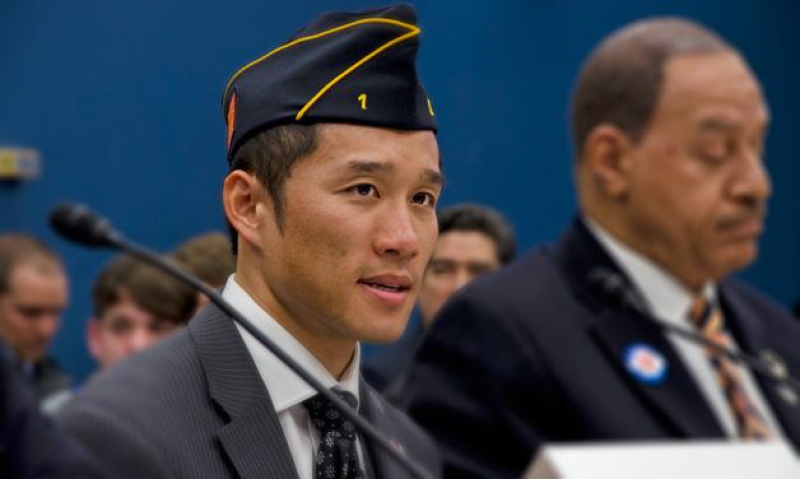
Legion's testimony recommends TAP improvements
During congressional testimony in support of government efforts to assist returning warriors in the transition back to civilian life, The American Legion offered numerous suggestions to improve the process.
Davy Leghorn, assistant director of The American Legion’s National Veterans Employment and Education Division, presented testimony on behalf of the Legion to the U.S. House of Representatives Committee on Veterans’ Affairs Subcommittee on Economic Opportunity hearing on Jan. 27. The subcommittee convened to discuss the federal government’s Transition Assistance Program (TAP).
TAP is authorized as part of the VOW to Hire Heroes Act of 2011 – P.L. 112-56 – which resulted in the establishment of the Veterans Employment Initiative Task Force recommendations for improving and standardizing transition activities among the services. The standardization includes the development and implementation of Career Readiness Standards; institutionalizing Transition GPS (Goals, Plans, Success) revamped program curriculum; integrating a culminating capstone event prior to a servicemembers transition or retirement; and implementation of a Military Life Cycle model to maximize the benefits of interagency and joint interoperability.
The American Legion has spent the last two years observing daily operations of programs, including the five-day mandatory portion, and the specialized capstone courses that comprise Transition GPS at seven different military installations.
“In general, we were highly impressed both by the amount and the quality of information that was conveyed, particularly in such a relatively short period of time,” said Leghorn during his testimony.
While he addressed the subcommittee, he also offered recommendations for improvement from the Legion. The first suggestion included more emphasis on behaviors and etiquette that make an individual employable. The vast majority of the personnel leaving the armed services have not had significant experience working in a civilian work setting.
"We believe that insufficient emphasis is placed on these soft skills during TAP," Leghorn said. “Further, a five-day course cannot hope to teach behaviors obtained by spending a substantial part of one’s adult life in the civilian workplace. However, we believe that transitioning servicemembers would benefit if there were more discussions of workplace culture.”
Another recommendation included improvements to the information on education that is provided in TAP. With the Post-9/11 GI Bill, every transitioning servicemember has access to the opportunity to attend a higher education program or in some instances transfer the benefit to their dependents. Leghorn suggested to the subcommittee that the education track should incorporate more input from the Department of Education and that the education track of the Transition GPS be made mandatory for all transitioning servicemembers.
He also urged them to encourage collaboration between government entities and the private sector. The American Legion has already hosted employment workshops and hiring events to transitioning servicemembers. The Legion's Employment & Empowerment Summit is a two-day event hosted in various cities. During the summit, the Legion provides transportation and lodging to servicemembers going through TAP; the event ends with a job fair. Those who attend the events have a chance to learn about various opportunities in fields ranging from the banking industry to the trades, and they are able to receive some preliminary instruction on the soft skills needed to gain and maintain employment.
In written testimony, The American Legion pointed out issues with Department of Defense (DoD) personnel and TAP facilitators, all of whom are evaluated based on a limited scope of performance measures that only involve the administration of their programs, resulting in a lack of incentive for them to work outside the parameters.
The American Legion believes that this situation hinders the provision of important services to transitioning servicemembers. Amending DoD contracts for TAP facilitators to include a section regarding required collaboration with trusted private sector employers and service providers would easily solve this problem
While there are some shortcomings that require attention, the program overall appears to be successful and the implementation has been commendable, said Leghorn.
“The American Legion looks forward to continuing our work with the agencies and with Congress to continue to improve this valuable resource for our transitioning servicemembers," he said.
